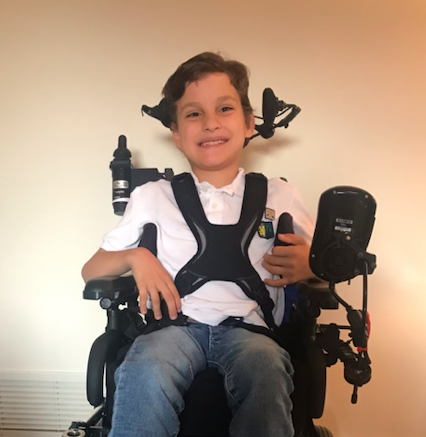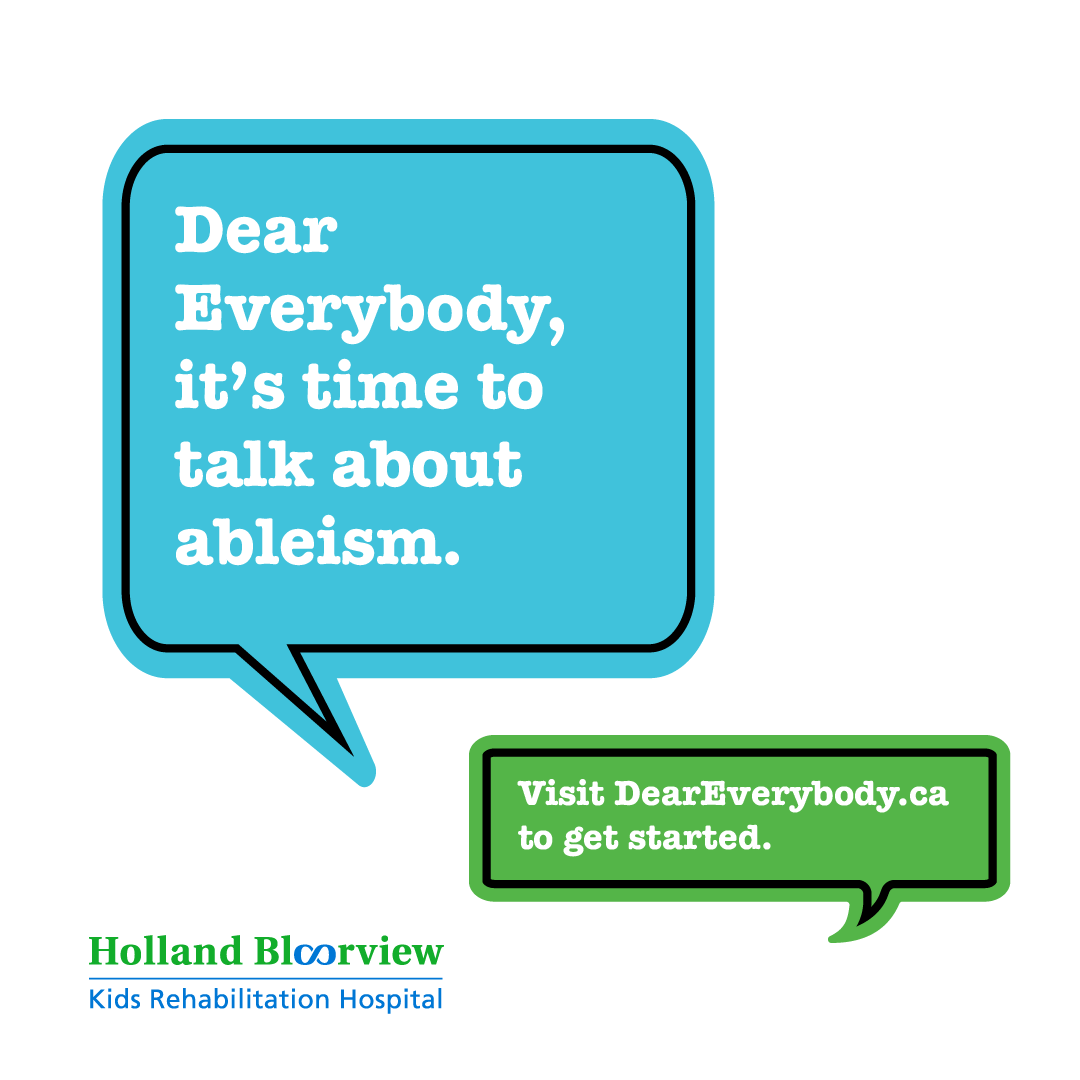Let’s talk about…
Ableism and Inclusion

Every Sunday since the start of the COVID-19 pandemic, nine-year-old Gabriel and his friends join a Zoom call for “Jake’s Jam,” a time of music, dance and fun. This summer, he even performed Shakira’s hit, “Try Everything” at the Youth Day Global virtual event.
But, when he’s not singing his favourite songs, Gabriel enjoys playing video games like Roblox or skateboarding.
For Gabriel, who has cerebral palsy and uses a wheelchair, it’s all fun and games until someone is excluded.
That’s why—with the help of his mom, Fabiana—Gabriel is encouraging a more inclusive world.
Exclusion is often one of the ways that ableism, or discrimination against people with disabilities, occurs. Can you describe how that exclusion makes you feel?
Gabriel: It’s not fair because other kids get to do it, but if a place is not accessible, they kick me out. It makes me a little upset.
Fabiana: Gabriel used to go to this skateboard park where they had adapted a skateboard for him. This year, they opened the summer camp, and his brother is there, but Gabriel cannot go. They couldn’t take him for camp because he needs 1:1 support, and the person who usually helps him cannot be there.
It’s hard because we try to always include Gabriel and make things happen for him, but there’s so many things we can’t control in the world. Even though he wants to do everything, it’s harder because most of the time there’s no flexibility on the part of others to include him.
And how is your family affected when Gabriel is excluded from an activity?
F: In our family, we always try to do everything together. Right now, Gabriel is nine, so we are still able to carry him if we go to a place that is not accessible. That’s how we’ve been functioning all these years. But now it’s getting harder because the kids are all a bit older, and I don’t see that much empathy anymore. When Gabriel was little, and the kids in our environment were also younger, there was more empathy and playing together. Now they’re older, they go do their own things and he’s always left alone.
As much as we try to do things with him, society is not equipped for inclusion. And we talk to the parents, obviously, but the kids are kids, right? They go different places, and those places are not always equipped to have him.
How could people help to include Gabriel, and other kids with disabilities, too?
F: Because Gabriel went to the Bloorview School Authority, we have a totally different perspective on how to do inclusion. Gabriel’s teacher, Paul, was so phenomenal. He taught us how the kids problem solve, because every kid had a different disability, and they had four kids who were able-bodied, but they all came up with a plan of how to play together. It makes me emotional because that’s the dream for society. How can we sit down together and come up with solutions? And if you don’t know, you ask, instead of excluding people right away.
And Gabriel, how would you like to be included? If someone asked you, “Hey, Gabriel, how can we include you in this game of tag,” for example, what would you say?
G: I would say I’ll tag you with my wheelchair. Whoever gets tagged around my chair is out.
And what would you want to tell others who perhaps don’t have any experience with disability and ableism?
F: There is so much pressure on families to always be the ones to advocate for inclusion and teach people, and that is exhausting. But if I didn’t have Gabriel, I would probably have also no clue about what to do. I think that’s why the Dear Everybody campaign is so important: to educate people and open people’s eyes. All these people watching this campaign, I’m hoping they can come and have a conversation with us, and not us always having to initiate the conversation.
